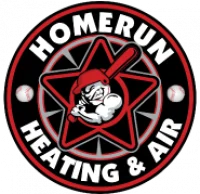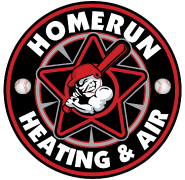As the dry months approach in Longmont, CO, residents know that water usage becomes a key concern. Whether you’re living in the heart of the city or nestled in the surrounding areas, water conservation and effective plumbing management are crucial. With the arid climate and the occasional water restrictions that can accompany these drier seasons, it’s important to be proactive about managing water use and ensuring that your plumbing system is functioning optimally. Fortunately, there are simple yet effective strategies that can help you reduce your water usage and avoid costly plumbing repairs.
In this blog, we’ll cover practical tips for managing water usage, signs to watch for in your plumbing, and how the right plumbing services can save you both water and money. With Longmont’s unique climate in mind, we’ll ensure you have the information you need to protect your home and the environment during the dry months.
Why Water Conservation is Crucial in Longmont, CO
Longmont, like much of Colorado, faces a semi-arid climate. Although the region enjoys sunny weather and beautiful clear skies, it also means water resources can be limited. For this reason, both residents and businesses must adopt water-saving practices to ensure that we use our resources wisely and sustainably.
Not only do these efforts help conserve water, but they can also lead to lower water bills and fewer plumbing issues. Colorado’s water regulations, which sometimes include seasonal restrictions, can require residents to change their habits or upgrade plumbing fixtures to meet new conservation standards. So, while it’s important to stay informed about seasonal changes, knowing how to manage your water usage effectively at home is a year-round responsibility.
1. Understanding Your Water Usage: Start With Awareness
Before diving into the specifics of managing water usage, it’s important to understand where your water is being used most. In a typical home, around 70% of water use goes toward landscaping, bathing, laundry, and cooking. Longmont’s dry climate can push these usage rates higher, especially in areas with larger yards or gardens. By identifying your water consumption patterns, you can make targeted changes that result in greater efficiency.
How to Track Your Water Usage:
- Read your water meter: Take a look at your water meter and note the reading. Check it again after a day or two of normal use. This will give you an idea of how much water you are consuming.
- Analyze your water bill: Look for trends in your water bill. If you notice a sudden spike during the dry months, it may be time to evaluate your water usage habits.
- Consider your landscaping: Are you overwatering your plants? Are there leaks in your irrigation system? These factors can significantly increase your overall water usage.
2. Prevent Leaks Before They Become Problems
Leaks can be sneaky and may go unnoticed until they cause significant damage or result in higher water bills. During dry months, when every drop counts, it’s essential to regularly inspect your home for plumbing issues.
How to Spot Leaks:
- Listen for unusual sounds: If you hear water running or dripping when no taps are open, this is a sign you may have a leak.
- Check your water meter: If you suspect a leak, turn off all faucets and appliances using water, then check the meter. If the reading continues to increase, it’s time to call a professional.
- Inspect your appliances: Look for drips or pooling water around sinks, tubs, toilets, and washing machines. Even a small leak can add up over time.
Fixing leaks early not only conserves water but also prevents potential damage to your home’s foundation, walls, and floors. Professional plumbers can help you identify and repair leaks efficiently, ensuring that no water goes to waste.
3. Upgrade to Water-Efficient Fixtures
Upgrading your plumbing fixtures is one of the most effective ways to reduce your water usage without sacrificing comfort. Water-efficient appliances are designed to provide the same performance as traditional models, but with far less water.
Water-Efficient Fixtures to Consider:
- Low-Flow Toilets: A low-flow toilet uses significantly less water per flush than older models, saving hundreds of gallons annually.
- Water-Saving Faucets: Replacing older faucets with low-flow models can save water without compromising water pressure. Many models now feature aerators that mix air into the water stream, reducing flow while maintaining pressure.
- Efficient Showerheads: Low-flow showerheads reduce the water flow while still delivering a satisfying shower experience. These can save thousands of gallons of water every year.
- Energy-Star Appliances: Dishwashers and washing machines with an Energy Star rating are not only water-efficient but also help save energy, reducing your overall utility costs.
By investing in these upgrades, you’ll reduce your environmental impact and potentially avoid costly plumbing repairs in the future.
4. Landscaping Tips for Water Conservation
As much as we love our lawns and gardens, they can consume a lot of water. With Longmont’s climate, it’s important to adjust your landscaping practices to use water more efficiently. Here are some practical ways to conserve water in your yard:
Watering Tips:
- Water early in the morning or late in the evening: Watering during these times minimizes evaporation, ensuring that your plants get the moisture they need.
- Use drought-resistant plants: Native plants are adapted to the local climate and require less water, making them ideal for reducing irrigation needs.
- Install a drip irrigation system: Drip irrigation delivers water directly to the roots of plants, reducing water waste from evaporation and runoff.
- Mulch your garden beds: Mulching helps retain moisture in the soil, reducing the frequency of watering needed.
Implementing these tips can make a significant difference in your water consumption and lower your overall water usage during the dry months.
5. Regular Plumbing Maintenance: Protect Your Home and Water System
Preventive plumbing maintenance is key to ensuring your system runs efficiently. During the dry months, plumbing issues such as clogs and pipe leaks can arise more frequently due to fluctuations in temperature and water pressure. Regular plumbing checks can help you avoid unexpected repairs and water waste.
Routine Maintenance to Consider:
- Drain cleaning: Over time, kitchen sinks and bathroom drains can accumulate grease, soap scum, and hair. A professional plumber can help clean your drains, ensuring that water flows smoothly and preventing blockages.
- Water heater inspection: Hot water usage can increase during the colder months. Having your water heater inspected and serviced ensures it’s working efficiently, helping to reduce water waste and prevent breakdowns.
- Pipe inspection: Temperature fluctuations during the dry months can cause pipes to expand and contract, potentially leading to cracks or leaks. Have your pipes inspected to catch issues before they escalate.
Routine plumbing maintenance doesn’t just help with water conservation, but it also ensures that your system stays in top shape throughout the year.
6. Consider Water-Saving Technology
In today’s digital age, water-saving technology is becoming more accessible and effective. Smart water management systems can track your water usage and automatically adjust it to conserve resources.
Examples of Water-Saving Technology:
- Smart irrigation systems: These systems use weather data to adjust watering schedules, ensuring that your garden only gets watered when it needs it.
- Water sensors: These devices monitor water pressure and flow, alerting you to any potential leaks or overuse.
- Water-saving appliances: Many new dishwashers, washing machines, and toilets feature smart technology that helps you reduce water consumption while maintaining performance.
By integrating technology into your home, you can automate many of your water-saving efforts, ensuring that your home uses water as efficiently as possible.
For Plumbing Services in Longmont, CO, Contact Homerun Heating & Air Today
At Homerun Heating & Air, we understand the importance of managing your water usage, especially during the dry months in Longmont, CO. Our team of expert plumbers is here to help you with everything from water-efficient plumbing installations to leak detection and regular maintenance. With our guidance, you can save water, reduce your bills, and enjoy peace of mind knowing your plumbing system is in top condition.
Contact us today to schedule a consultation or to learn more about our services. Whether you need to upgrade your plumbing fixtures or have your system inspected, we’re here to help you make the most of your water resources and keep your home running smoothly.

